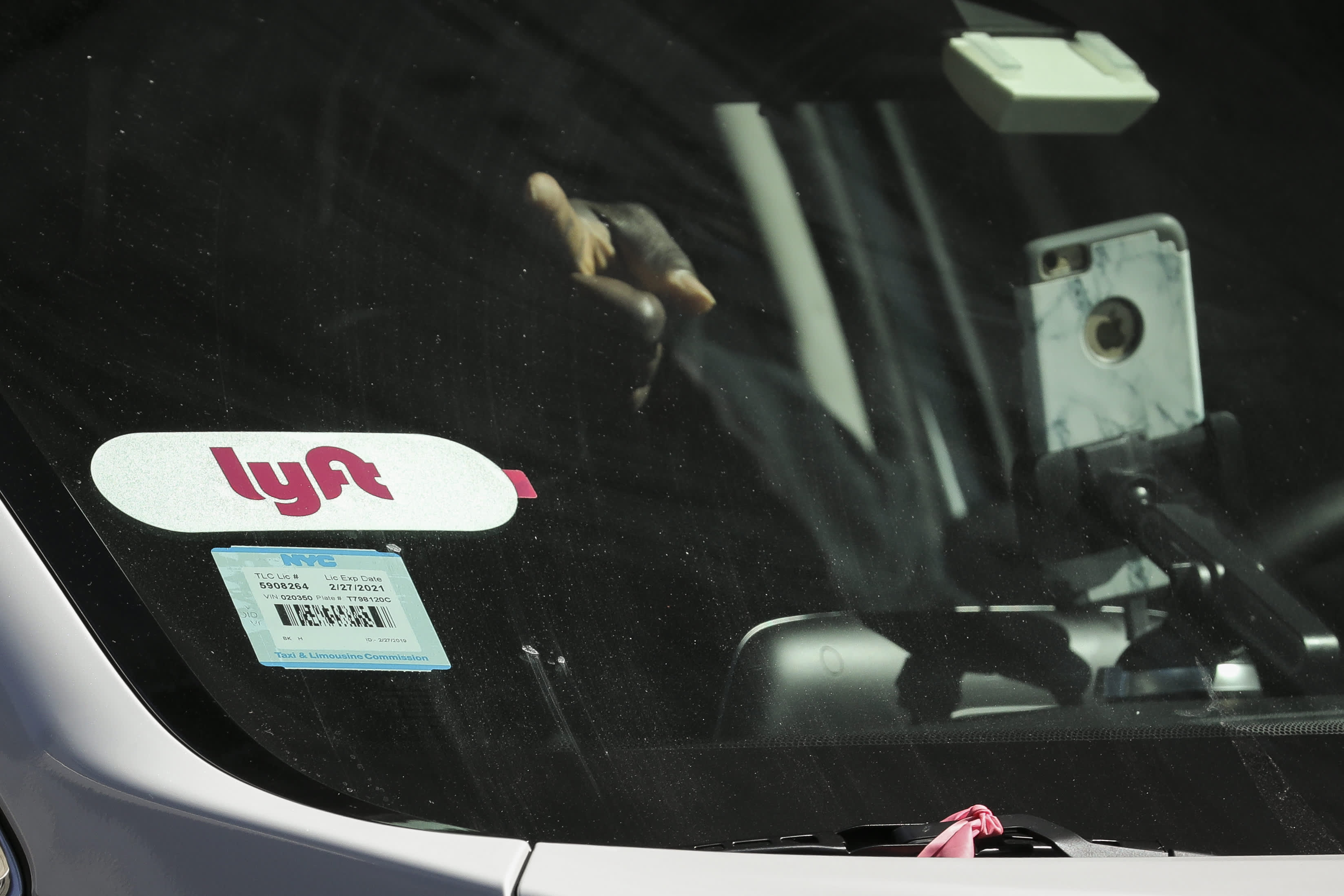
A Lyft logo is displayed on a vehicle driving through Times Square, March 19, 2019 in New York City. (Photo by Drew Angerer/Getty Images)
Drew Angerer
Nearly 8 million Americans are collecting unemployment benefits through a new program meant for the self-employed and other groups.
The $2.2 trillion coronavirus relief law enacted in March, known as the CARES Act, expanded unemployment benefits for jobless workers, who’ve filed for assistance in record numbers amid the coronavirus pandemic.
One of the law’s measures, the Pandemic Unemployment Assistance program, extended aid to workers who were previously ineligible for unemployment benefits, such as the self-employed, independent contractors, gig workers and those with limited work history.
PUA recipients
About 7.8 million people were collecting benefits from the PUA program as of May 9, according to U.S. Labor Department data released Thursday.
That’s about 25% of the total 31 million Americans who were collecting benefits as of that date.
More from Personal Finance
How businesses and workers can keep PPP loan forgiveness and unemployment benefits
These restrictions on coronavirus loans may surprise business owners
Here’s how unpaid debt is handled when a person dies
The PUA figures provide more of a rough ballpark than a precise data snapshot, said Michele Evermore, senior policy analyst at the National Employment Law Project.
States haven’t reported data in a uniform way and there are likely some anomalies, she said.
Massachusetts, for example, said last week that it had inadvertently inflated the PUA claims figures reported by the DOL by more than 1 million people.
Despite the data issues, the DOL’s PUA statistics likely undercount a large swath of self-employed and other workers collecting benefits through the PUA program. That’s because almost two dozen states didn’t report data about the program to the Labor Department.
“I’m sure the number is far higher than what we’re seeing here,” Evermore said.
Several million Americans have filed for unemployment benefits in the weeks since May 9, for example, meaning many more individuals may now be receiving benefits through the PUA program.
About 1.9 million people filed an initial unemployment claim (meaning they’re applying to receive benefits) during the week ended May 23, according to non-seasonally adjusted DOL data.
More than 62% of those initial claims were from the PUA program.
“I absolutely think this will create a precedent for covering people who weren’t normally covered,” Evermore said of the PUA numbers. “I think this will definitely create pressure to cover them long term.”
At the same time, the amount of aid issued through the PUA program may be inflated by fraudulent claims, according to a warning issued Tuesday by the Labor Department’s inspector general office.
Individuals claiming PUA must self-certify that they lost employment income due to Covid-19. That self-certification delivers payments more quickly but will lead to “increased improper payments and fraud,” the memo said.
The expansion of unemployment benefits to groups like the self-employed has met with snags and delays.
PUA headaches
Many states were also slow to get their programs up and running. Some of the stragglers, like Ohio and Nevada, implemented their PUA programs about two weeks ago, Evermore said — roughly two months after the unemployment drama began.
Some individuals who make a living by splitting time between contract work and traditional W-2 employment have found their unemployment checks smaller than anticipated due to administrative issues.
Some gig workers like Uber and Lyft drivers in states like California, where workers are fighting to be considered employees instead of independent contractors, have also been reluctant to file for PUA. They fear that an application could be construed as an admission that they’re independent contractors and damage their legal case against gig companies.



